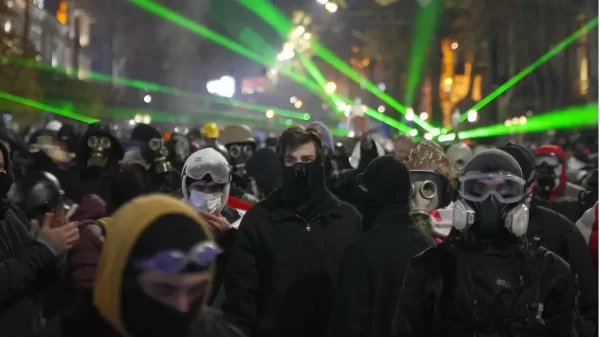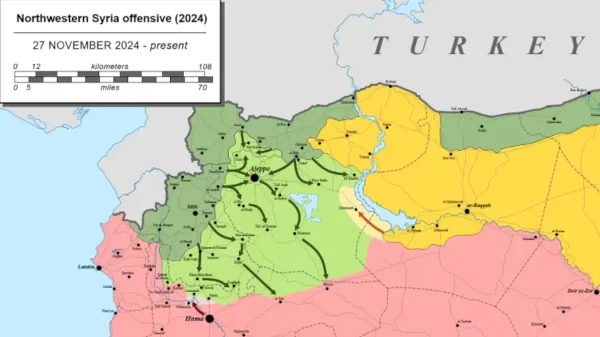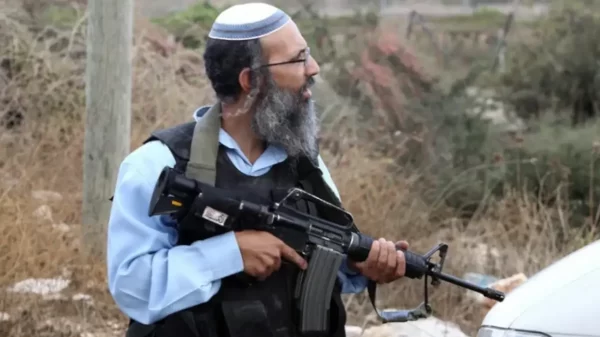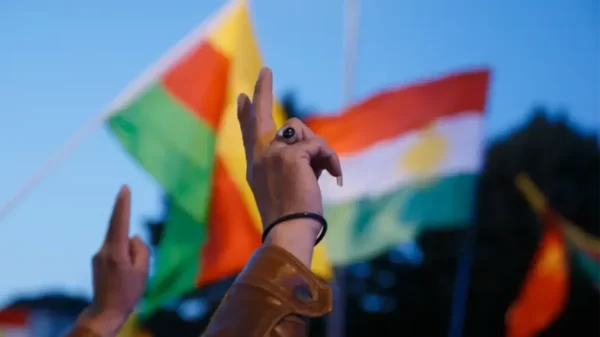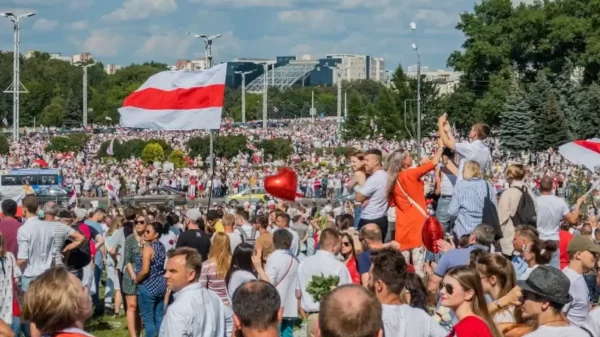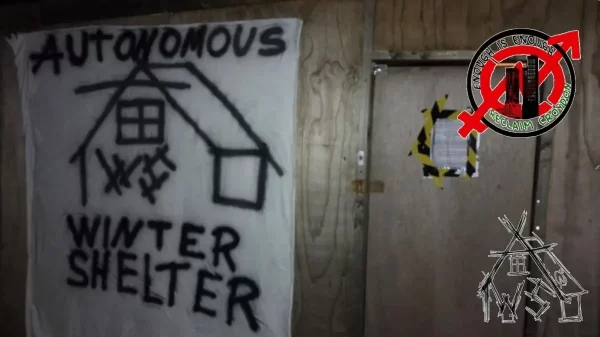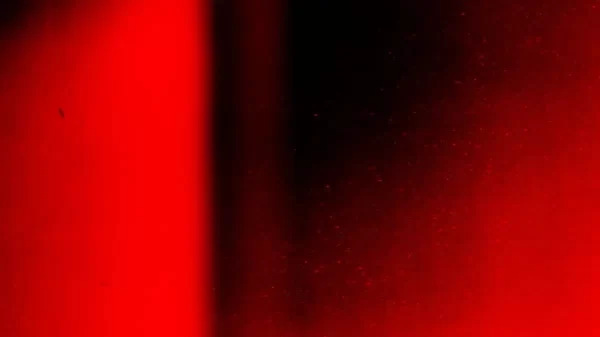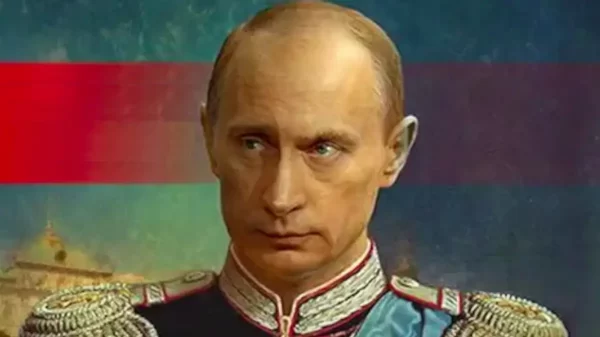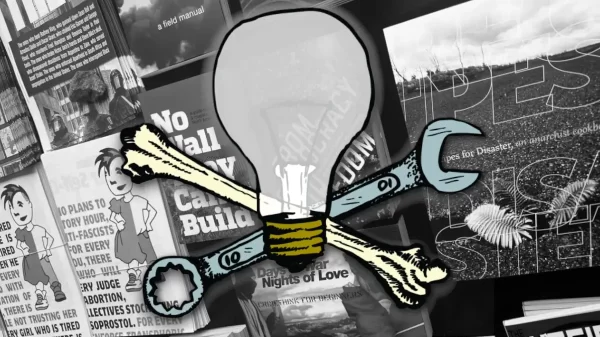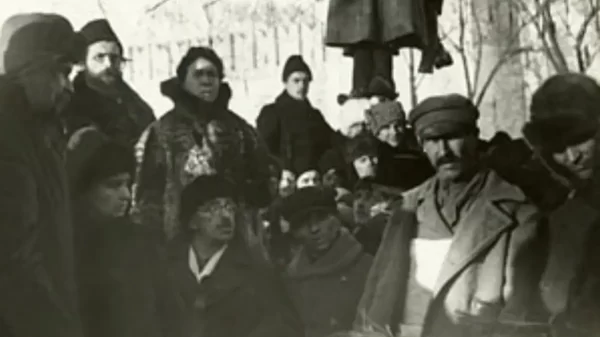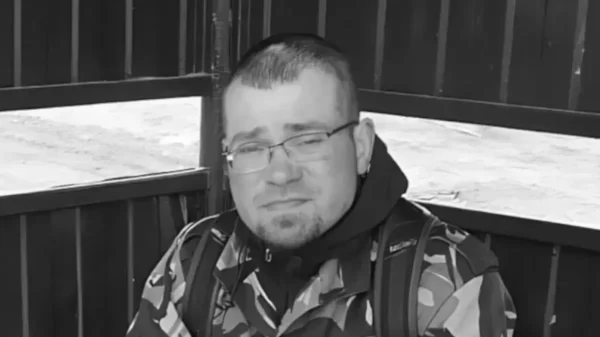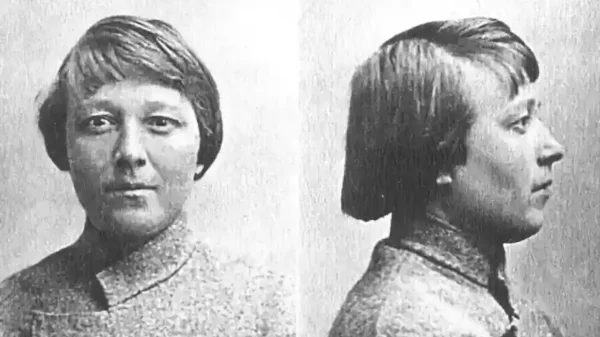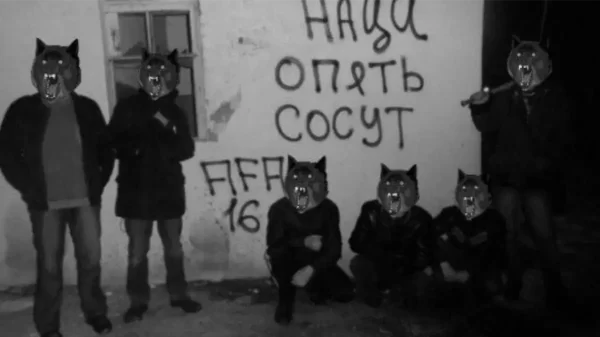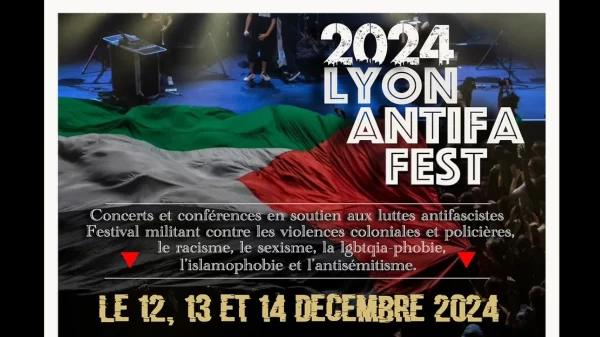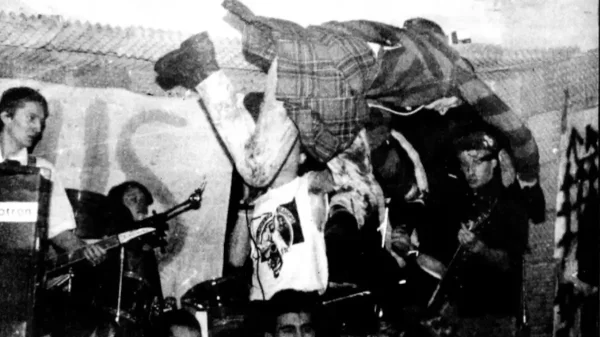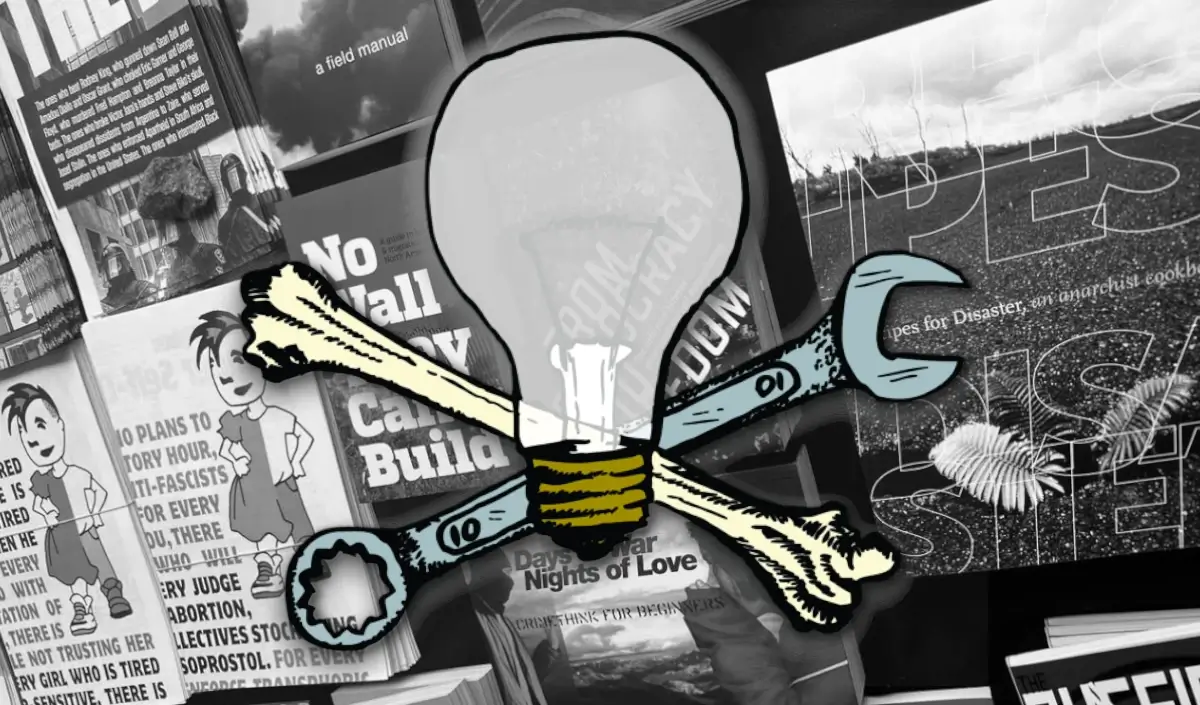For many of us , anarchist project called Crimethinc is a source of inspiration, interesting ideas and news from all over the world presented from an anarchist point of view. At the same time it lacks arrogance and „all knowing”. Eventually after many delays we manage to interview one person involved in the collective. Since then some things changed ( for example Biden is not in the presidential race anymore) . It’s important to state that this is just their personal views and this interview doesn’t necessarily presents some sort of „Crimethinc position” , nor the answers were agreed with everyone in the collective.
CrimethInc. is one of the longest-running anarchist projects in the United States today. Can you tell us when it started and what prompted comrades to start it?
Our collective came together in the mid-1990s—in what now feels like a distant, different time. In those days, before most people were using email or the internet, we communicated through the mail, or by using homemade hacking devices to persuade public payphones to let us make free long-distance calls. At first, a few of us got to know each other through the underground publishing network that existed parallel to the do-it-yourself punk scene. In the beginning, we contributed to each other’s individual projects; as we collaborated more, we embarked on a collective project.
We began working together for the sheer joy of collaborating. There is really nothing like bringing your own creative contribution to a project and seeing your comrades improve and expand on it, revealing new dimensions and possibilities that had not occurred to you. It is one of life’s greatest pleasures.
It seems that in early days, CrimethInc. was based in the punk scene and so called “lifestyle” anarchism. Since then, it appears that the focus has shifted away from the subculture and towards “serious” politics. Would you agree with that?
We took what we were doing just as seriously then, actually, in the 1990s and early 2000s, when our critics called us “lifestylists.” Most of them have disappeared now.
On a fundamental level, our project has not changed very much. Today as in those days, our basic question remains: what can we accomplish if we dedicate our entire lives to creative revolutionary efforts, rather than simply seeking to make money and amass property on a private basis?
Of course, regaining control of one’s own life and time and creative potential is not something that one can accomplish alone, or only with the assistance of the other members of a collective, or even a subculture. It requires transforming our entire society on a global basis. That was what we were trying to do in 1995 and it is what we are trying to do today—just with a few more people and a little bit more experience.
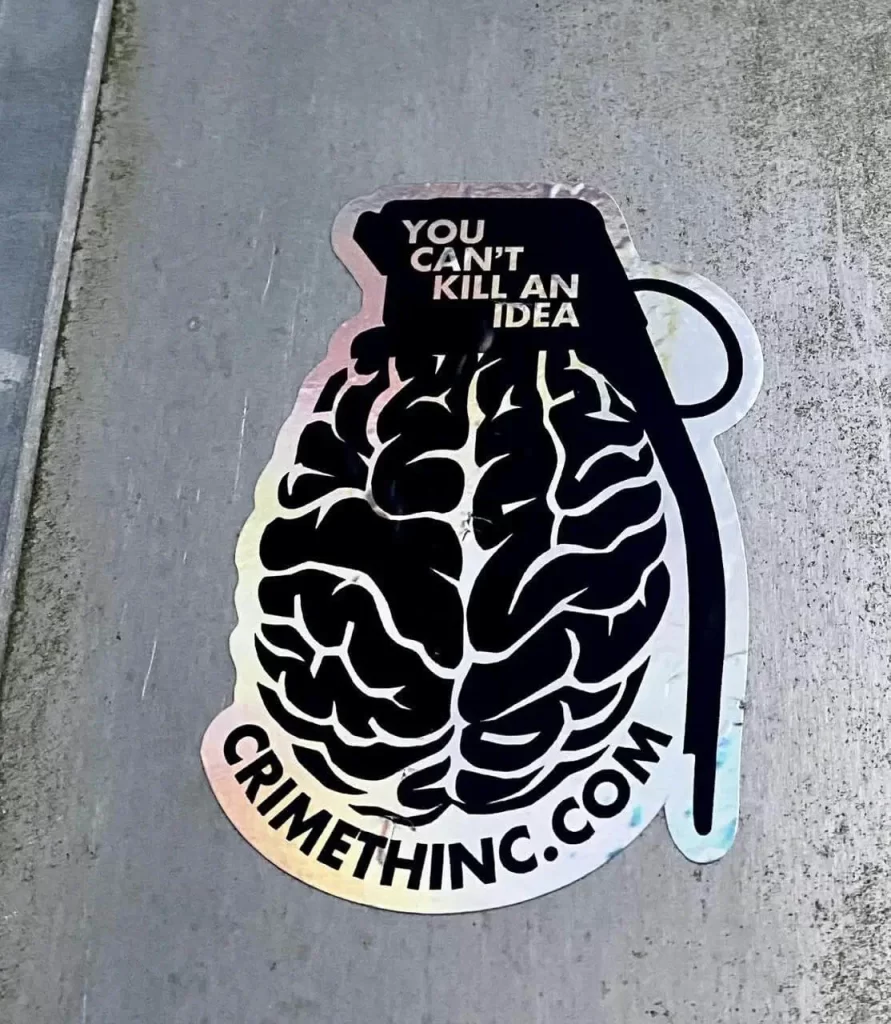
In the year 2000, CrimethInc. published a book called Days of War, Nights of Love. It seemed to be a very influential book within the anarchist movement. Tell us more about this project. How many copies did you distribute? Do you think it’s still as relevant today as it was in 2000, or is it more of a historical object now?
It is easy to tell that Days of War, Nights of Love was the work of enthusiastic young people. That is its greatest strength—and, perhaps, limitation. It collects the essays we published across the second half of the 1990s with some other material we created together.
Is it still relevant today? Yes, in some ways, it must be, even as the world has gone on changing. Days of War still presents a set of values that can offer a point of departure towards something better than the capitalist catastrophe that we are currently experiencing. Today, it can also offer a glimpse of an easier and more playful time, and that glimpse might be valuable in a more dangerous and challenging context, when it can be difficult to dream.
As for the number of copies, we lost count many years ago, somewhere after 60,000.
Is it still pretty much same people as on the beginning, or is it more new people involved these days carrying the torch?
There are some participants from the old days, and some people who got involved twenty years ago, and some people who have been working on things with us for a year. The most challenging thing is when one of the old-timers has to step back from a role, but so far, we have been able to pass on responsibilities successfully.
In some ways, our project is a broad, loose network; but at the same time, it is built on tight personal relationships and long-term commitments. It works because it combines the strongest parts of informal relationships, flexible structures, and reliable infrastructure. We would like to see other anarchist projects also aspire to longevity and consistency.
When projects like ours involve too much needless process and protocol, it costs too much energy to accomplish anything, and people eventually drift away. In other cases, people start infrastructure projects, hoping others will take over the work, but without really committing themselves to the project—and that lack of commitment becomes infectious, so the projects collapse. In the United States especially, there is a tendency for people to focus on their own one-person vanity projects, so that when a single person burns out, the project disappears. And of course, many people who grow up in an individualized society like the United States absorb an individualistic mentality that leads to performative conflicts inside of projects—and as a result, everyone loses.
The best thing for a project is if it begins from the collective commitment of several people who trust each other and enjoy working together. To avoid territorial disputes, it helps if the participants support each other’s autonomy in their respective spheres of influence. In my best experiences working with longtime comrades, when we have an actual disagreement, each of us is fighting to try to make sure the other person gets his or her way, because we trust each other’s judgment as much as our own and our relationship is worth much more than just winning an argument.
Right now, CrimethInc. is quite a broad platform, with articles dealing both with history of the movement and current issues and translated into many languages. We are always impressed with how you always manage to find comrades close to the affairs to ask their opinion and take on events happening.
The international anarchist movement should function as a nerve network in which information circulates from those who experience things directly to those who are trying to learn about them. So, for example, when Russia invaded Ukraine, we made sure that the perspectives we were publishing were from Russians and Ukrainians, not from, say, random Westerners who didn’t know anything about what has been happening to anarchists in Russia over the past decade.
The challenge, of course, is to find comrades in different parts of the world with whom we share values and goals, and to develop a rapport and trust with them before an emergency breaks out. This is why it makes more sense to organize in larger networks (which can be informal as well as formal) over a period of decades, rather than simply as isolated individuals. If we don’t make contacts in advance and get to know each other through a process of dialogue, and instead we just scramble to find someone who is an anarchist in the affected region after the events begin, we will not be able to be sure how much to trust their analysis.
Often, people just look for some local who already agrees with whatever analysis they have developed from a great distance. This is irresponsible for several different reasons.
Of course, even when we are speaking to people who are immediately involved in a situation or directly impacted by it, they often disagree with each other. When that happens, we do our best to put the questions that arise in front of anarchists in other places, even when the answers are not clear to us. Rather than trying to present some sort of party line, we try to preserve the nuances, complexities, and uncertainties of every situation in our coverage.
Some of our most interesting projects have arisen as a consequence of internal disagreements. If you want to refine your analysis, there is nothing more helpful than an intelligent person who disagrees with you. Instead of seeking uniformity of opinion within our projects, we often seek generative debate.
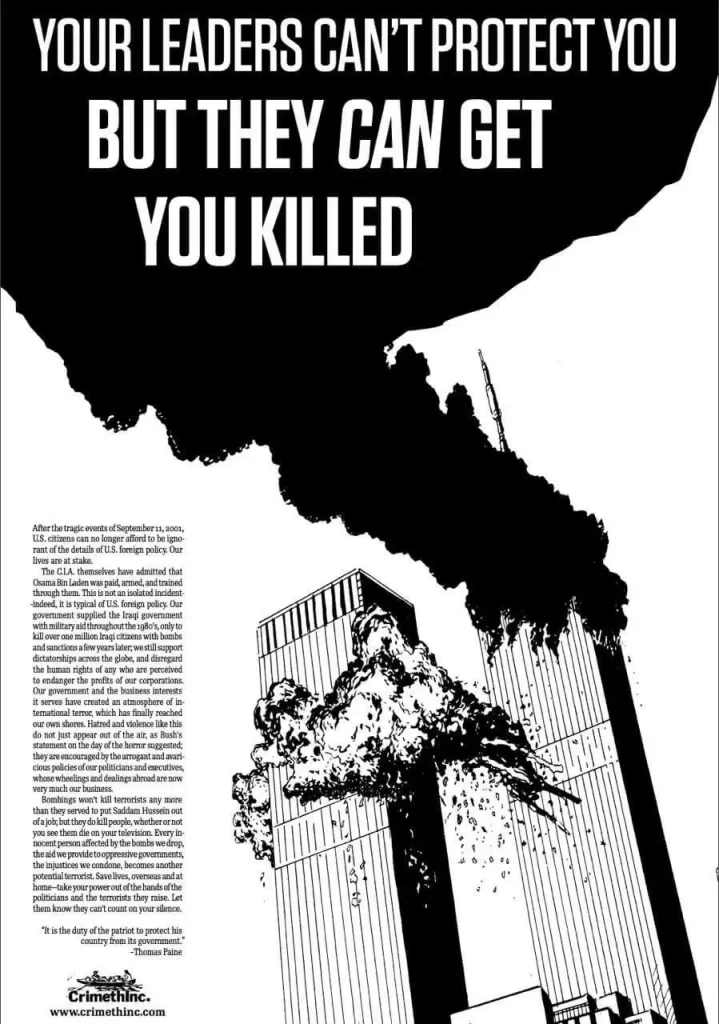
There definitely seems to be fair bit of “westplaining” in the anarchist movement (although not nearly as much as in the broader Left) and people often taking a very US-centric stance. As Eastern European anarchists, we have to deal with fair bit of this. Why do you think that is? Do you think this is a problem or more of a minor issue?
Yes, it is a problem. It simply shows how the power relations that prevail in our society as a whole also exist in microcosm within the anarchist community. We should not flagellate ourselves for this, but it is one of the dynamics that we should work to change.
Again, we need to prioritize getting perspectives from those who have the most information about a situation. The people who are located in the middle of the events do not always know everything (for example, in January 2022, some of our comrades in Ukraine did not believe that Putin was about to invade, whereas from outside, it seemed obvious that it was about to happen)—but they should never be left out of the conversation.
Anarchists will not succeed in creating a world without state oppression if we assume that our task is just to repeat anarchist dogma whether it is helpful to people or not. We have to understand the real problems that people face (for example, we have to understand why many people in Latvia don’t want to be ruled by Russia) and propose anarchist solutions to those problems. Anarchism will spread if it offers more useful solutions to the problems that ordinary people experience than statist political frameworks can.
Our discourse should be more focused on understanding each other, not judging each other; on creating bridges, not figuring out who belongs in which categories. Structurally speaking, the way that proponents of hierarchy approach conflict is to divide and destroy their enemies—whereas ideally, anarchists should seek to transcend the existing conflicts and create the possibility for coexistence and cooperation. Yes, we need to organize militant direct action to defend communities and attack the structures of oppression; but our success in creating anarchist social relations does not just depend on being able to defeat fascists, but also on being able to create dialogue and voluntary forms of collaboration in place of the authoritarian relations that fascists seek to impose.
Moving to the current affairs—the situation in the USA seems to be incredibly volatile. After the recent Trump assassination attempt, it seems almost certain that Trump will win the next election. Do you think this makes a difference for you as anarchists? Of course, from an ideological point of view, the whole system is rotten and never worked for the people, but on practical level—do you think a Trump victory will make things even worse, or do you think it would be no different if Democrats won? Looking from the outside, it all looks incredibly scary, with Trump being able to become a de facto dictator in near future and things like Project 2025 guaranteed to keep Republicans in power. How is it actually looking on the ground?
Yes, there are some differences between the centrists and the far right, just like there is a difference between living in Poland and Russia, just like there was a difference between Weimar Germany and the Nazi Germany. For example, Trump is explicitly promising to „CARRY OUT THE LARGEST DEPORTATION OPERATION IN AMERICAN HISTORY.” If he succeeds in doing this, it will certainly have an impact—though Democrats often maintain the oppressive policies that Republicans introduce, and sometimes even intensify them.
Generally speaking, the more directly repressive a government is, the more unified it is, and the more popular support it has, the worse for anarchists and everyone else who suffers at the hands of the state.
When Trump was elected in 2016, he came to power with the goal of establishing a government that was more repressive than the Obama administration; but his government was also more divided and it had less popular support. So that created new challenges, but it also offered us new opportunities, and we often succeeded in taking advantage of them. The Biden administration has continued to be repressive, but it has also generated more public apathy—so this created different challenges over the past four years, which have not gone particularly well for anarchists in the United States. If Trump returns to office in 2025, the danger is that he will preside over a government that is more united than his government in 2017, as well as more repressive, and that people will remain apathetic. We will see.
Perhaps the most frightening part is that liberals already seem resigned to letting Trump take power, even as they admit that he wants to establish a fascist dictatorship. It remains to be seen whether the general public is exhausted and prepared to accept his control, or if there will be resistance again.
So yes, it is scary. But also, we are anarchists precisely because we believe that it is important to take action in such situations, even when we cannot be sure what the consequences will be.
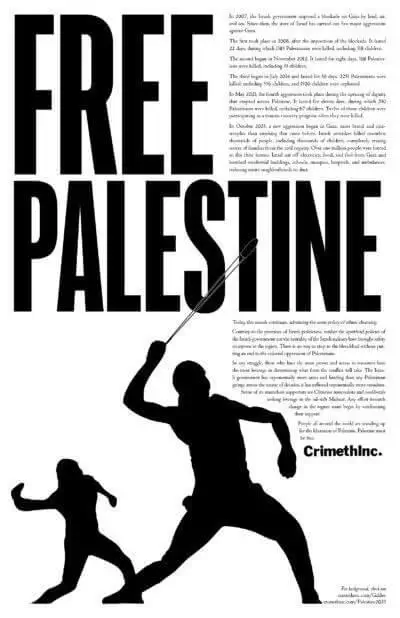
Do you think it is important for anarchists to learn from comrades in different countries and support international struggles? Or is it better to focus all your energy in the local matters?
Without an international perspective, you cannot act effectively on a local basis. You cannot really understand your local context unless you understand the multinational corporations that are acting in it—unless you know where the resources that are consumed locally were extracted from, and at what cost—unless you know what is going on in the places from which the immigrants in your community arrived. Supporting international struggles is a way to exert leverage on the international forces that impact your local community.
Likewise, sharing strategies and tactics internationally can enable us to be more effective in local struggles. The police already do this, so if we do not, they will always be ahead of us.
During last Trump presidency there was a wave of discontent and often open rebellion against the authorities, including the Black Lives Matter movement. Do you think there is anything left from that wave or was it all channeled by the liberals into ineffective electoral politics? What can we learn from those events? Do you think anarchist movement in the United States actually learned anything?
In fact, the rebellions in response to police murders began in Oakland in 2009 with the response to the murder of Oscar Grant, and gained worldwide attention during the uprising in Ferguson in 2014—which became associated with the slogan “Black Lives Matter.” But for reasons that have not been properly studied yet, the rebellions came to a halt when Trump was elected in 2016. No anti-police uprisings occurred until May 2020, when the movement exploded back into force in response to the murder of George Floyd. It turned out that the memory of those earlier revolts had remained, smoldering, beneath the surface of society, even if it appeared to have ended.
When Trump entered office in 2017, anarchists and other anti-fascists immediately mobilized to respond to his new policies—for example, shutting down airports in protest against the Muslim Ban—and to counter fascist mobilizations and recruitment drives. It was frightening, but after the confrontations at the “Unite the Right” rally in Charlottesville, we basically succeeded in halting the rise of fascism in the street.
One of the goals of anarchists in the mobilizations of 2017 was to demonstrate reproducible tactics that people everywhere could use. If we trace a trajectory from the hundreds of anarchists who participated in the black bloc demonstration in Washington, DC on the day that Donald Trump became president in 2017 to the millions of people who came out into the streets at the end of May 2020, we can say that the anarchists who set out to popularize the tactics that a small number of radicals had developed in the years from 2009-2016 basically succeeded in this. In summer of 2020, hundreds of thousands of people gathered in the streets wearing masks and concealing their identities; they blocked freeways, defended themselves from police, and established autonomous zones. The majority were not anarchists, but they were using tactics that anarchists had developed here.
We can tell this story in a pair of images. On the day Trump was inaugurated—January 20, 2017—a single anarchist holding an umbrella led the charge in which dozens of anarchists escaped from a police kettle in Washington, DC. In summer of 2020, in Portland, Oregon, hundreds of people gathered downtown every night for weeks, using umbrellas to defend themselves as they laid siege to the police and federal agents barricaded inside the federal courthouse.
Many inspiring things took place over the rest of 2020, but by the end of the year, the momentum of the uprising had been suppressed. The problem was not that this wave of activity was channeled into electoral politics; liberals and authoritarian leftists did everything they could to discredit or control direct action, but they often failed. Rather, with the support of police, fascists returned to the streets with guns, killing dozens of people, and police took advantage of this to reestablish control. Worse, Joe Biden and the Democrats did everything they could to channel more resources to the police and reestablish their perceived legitimacy in the public eye.
This did not make the police like the Democrats any more, of course; it just strengthened the repressive forces that Trump will use to consolidate control of society when he returns to power. Over the past thirty years, neoliberal centrists have created the conditions for their own defeat—preserving the aspects of capitalism that are impoverishing people while systematically suppressing all the organizing of anarchists, leftists, oppressed communities, and anyone else that could offer an alternative to neoliberal capitalism and fascism. Whatever happens next, they are partly to blame.
As for whether people in the United States learned anything from the uprising of 2020—not just anarchists, but the millions who participated in it—it is not easy to tell. When the anti-police uprisings stopped between 2017 and 2020, we thought that the events in Ferguson had been completely forgotten, but it turned out that the seeds were still there, in the soil of society, and that we had been tending them with the actions we took against fascists over those years.
So do people still remember how to engage in revolt today? We will find out.
Watching from the sidelines, seems like the wave of organized far-right violence on the streets diminished significantly after the failed storming of the capitol January 6th, but recently there seems to be a new uptick in fascist activity. Will we see return of the big street battles between anti-fascists and the far-right crowd, or do you think it will look different now?
It’s hard to predict the future. Probably what happens next will not resemble the street battles of 2017. Today, it appears that a much larger segment of society has been converted to an openly fascist program, even though street-level fascist activity has died down. The far right will probably rely on the police to carry out their program, at least at first. If that doesn’t work, open conflict could break out, and it might be much bloodier than what happened in 2020.
What do you know about the movement in Poland?
In the old days, we listened to Dezerter, Włochaty, and Post Regiment; then we read the news from Poland in Abolishing the Borders from Below. Participants in our collective have traveled to Poland on several speaking tours over the past decade, visiting Rozbrat and many other places. We have published some reports from Polish comrades over the last four years—about mutual aid projects during the pandemic, solidarity efforts supporting displaced people at the border with Belarus, and organizing to preserve abortion access in Poland despite the oppressive laws. We continue to correspond with comrades there.
Still, it takes more than this to really understand a movement.
Is there anything you would like to tell us at the end, any final message?
Basically, anarchism is the proposal that we can create a social context in which each person can fulfill her own potential on her own terms—and that without the incentives to dominate and profit that capitalism artificially imposes, all of us would benefit from the ways that each of us succeeds.
In a time of selfishness, despair, and mass violence, this is something worth fighting for.


